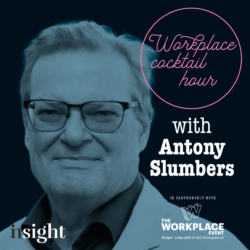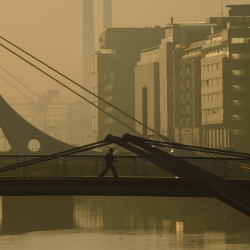To provide the best experiences, we use technologies like cookies to store and/or access device information. Consenting to these technologies will allow us to process data such as browsing behaviour or unique IDs on this site. Not consenting or withdrawing consent, may adversely affect certain features and functions.
The technical storage or access is strictly necessary for the legitimate purpose of enabling the use of a specific service explicitly requested by the subscriber or user, or for the sole purpose of carrying out the transmission of a communication over an electronic communications network.
The technical storage or access is necessary for the legitimate purpose of storing preferences that are not requested by the subscriber or user.
The technical storage or access that is used exclusively for statistical purposes.
The technical storage or access that is used exclusively for anonymous statistical purposes. Without a subpoena, voluntary compliance on the part of your Internet Service Provider, or additional records from a third party, information stored or retrieved for this purpose alone cannot usually be used to identify you.
The technical storage or access is required to create user profiles to send advertising, or to track the user on a website or across several websites for similar marketing purposes.
 Over a well-earned but unseasonable G&T, Antony Slumbers and Mark Eltringham discuss what makes work and workplaces great, and why bosses aren’t doing all they can to make them so. They also riff on the origins and wisdom of determining how much time people should spend in an office and how we escape the interminable binary loop of headlines about whether the home or the office is a better place to work. Antony talks about the role of AI in the future of work and property and what people should focus on in their changing lives. (more…)
Over a well-earned but unseasonable G&T, Antony Slumbers and Mark Eltringham discuss what makes work and workplaces great, and why bosses aren’t doing all they can to make them so. They also riff on the origins and wisdom of determining how much time people should spend in an office and how we escape the interminable binary loop of headlines about whether the home or the office is a better place to work. Antony talks about the role of AI in the future of work and property and what people should focus on in their changing lives. (more…)













 With over a third (36 percent) of workers concerned about the impact of technological changes and what this might mean for them, a new report from Virgin Media O2 Business claims that many people believe new tech will offer them a better work-life balance. According to the report, the pandemic accelerated remote and hybrid work, mostly benefitting desk-based workers. Meanwhile, deskless workers like teachers, nurses and engineers saw limited long-term change despite many organisations comprising both types of workers.
With over a third (36 percent) of workers concerned about the impact of technological changes and what this might mean for them, a new report from Virgin Media O2 Business claims that many people believe new tech will offer them a better work-life balance. According to the report, the pandemic accelerated remote and hybrid work, mostly benefitting desk-based workers. Meanwhile, deskless workers like teachers, nurses and engineers saw limited long-term change despite many organisations comprising both types of workers. 




 The CIPD has revealed its programme, including an exciting line-up of speakers, for its
The CIPD has revealed its programme, including an exciting line-up of speakers, for its 














December 8, 2023
Ten years of Insight and a few things I think I know (one of our most read pieces this year)
by Mark Eltringham • Comment, Flexible working, Technology, Workplace, Workplace design